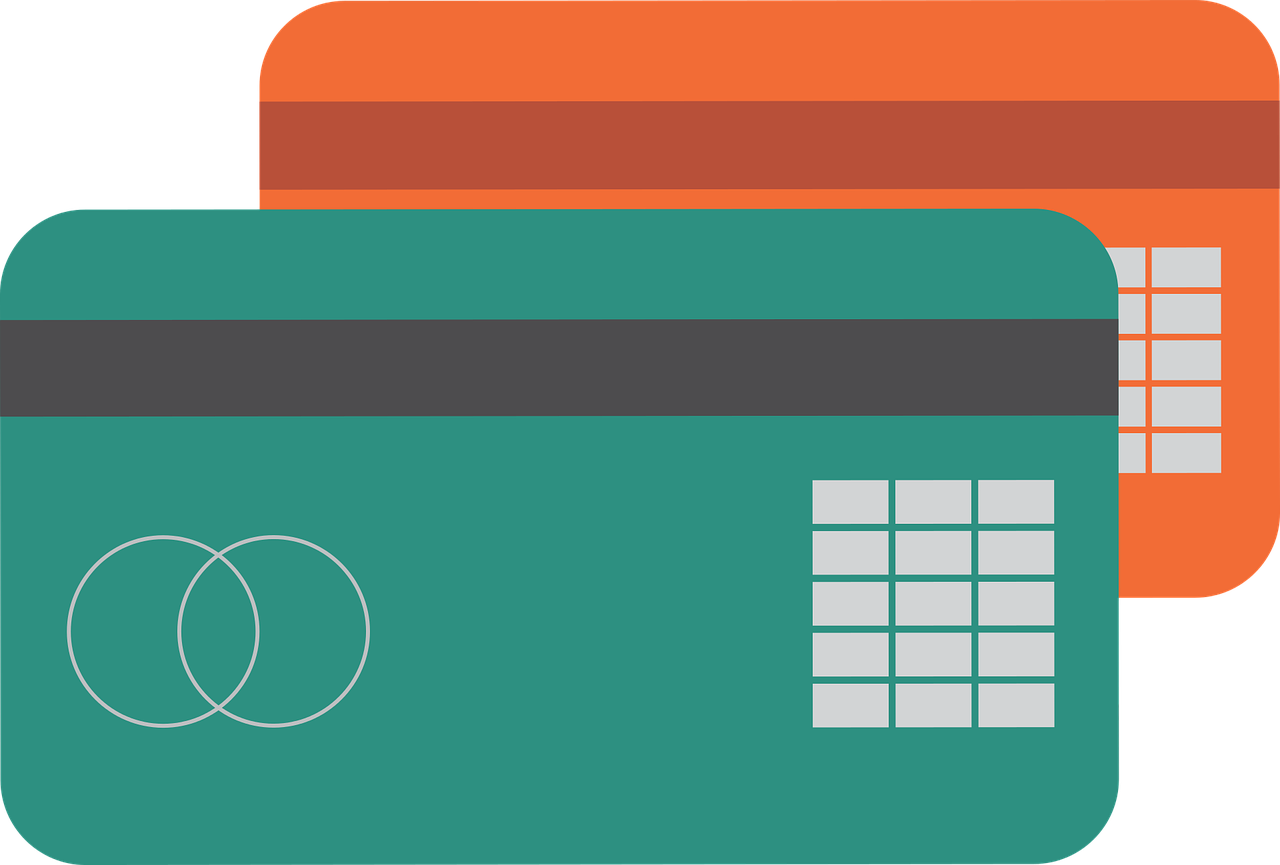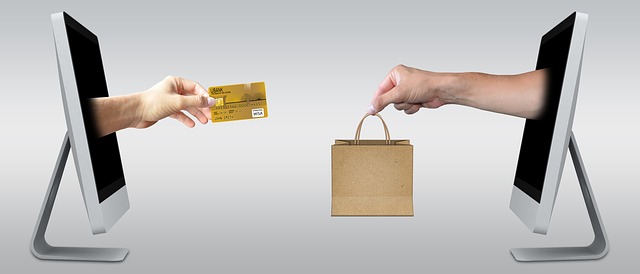Smart Financial Moves Every Entrepreneur Should Be Making
What would you do if your business suddenly fell apart? Do you have an exit strategy or any other financial plans in place? As an entrepreneur, a little bit of planning goes a long way. You may have various businesses, and all of them may be shining bright right now, but that does not mean they will always be. What do these all mean? Your financial health and the health of your business are interconnected. If you are not careful, your company could fail and leave you in a financial mess. That’s why, sometimes, business owners need to hire a business financial advisor. But is that it? Unfortunately, there is some homework that you can do. But we’re here to help. This post will guide you through the best financial moves that you should be making as an entrepreneur.
Keep Your Business and Personal Finances Separated
 Mixing personal and business finances is a common pitfall for entrepreneurs. It often leads to confusion and can complicate your financial picture. Keeping these two realms separate simplifies bookkeeping and tax preparation. When you maintain distinct accounts, it becomes easier to track expenses related to your business versus personal spending.
Mixing personal and business finances is a common pitfall for entrepreneurs. It often leads to confusion and can complicate your financial picture. Keeping these two realms separate simplifies bookkeeping and tax preparation. When you maintain distinct accounts, it becomes easier to track expenses related to your business versus personal spending.
This clarity not only helps in managing cash flow but also provides a clearer view of profitability. Additionally, separating finances builds credibility with lenders and investors. Having organized records demonstrates professionalism, which can lead to better financing opportunities down the line.
Create an Emergency Fund
 Every entrepreneur faces uncertainties. You can call an emergency fund your reliable safety net, especially during turbulent times. The key is simple. For instance, you can set aside around three to six months’ worth of living expenses. This buffer can cover unexpected costs, like equipment failure or sudden market shifts.
Every entrepreneur faces uncertainties. You can call an emergency fund your reliable safety net, especially during turbulent times. The key is simple. For instance, you can set aside around three to six months’ worth of living expenses. This buffer can cover unexpected costs, like equipment failure or sudden market shifts.
You can also get a separate savings account dedicated solely to this fund. It’s tempting to dip into it for regular expenses, but resisting that urge preserves your financial security. Remember, an emergency fund isn’t just for personal use; it protects your business, too. Having access to cash flow can keep operations smooth and maintain peace of mind when challenges arise.
Max Out Tax Deductions
Tax deductions can be a game changer for entrepreneurs. They reduce your taxable income, which means you keep more of what you earn. Start by keeping meticulous records of all business-related expenses. This includes supplies, travel costs, and even home office deductions, if applicable. Every little bit adds up. Don’t forget about retirement plan contributions. Setting aside funds not only prepares you for the future but also offers substantial tax advantages now. Consider hiring professionals for specialized tasks like legal or accounting services. These fees are often deductible as well, helping to lighten your financial load.
Establish Credit Lines Early
 Having access to credit can help during cash flow crunches or unexpected expenses. You don’t want to be scrambling at the last minute, especially when opportunities arise that require quick funding. Getting approved for a business credit card or line of credit from your bank is a simple move that can save you thousands.
Having access to credit can help during cash flow crunches or unexpected expenses. You don’t want to be scrambling at the last minute, especially when opportunities arise that require quick funding. Getting approved for a business credit card or line of credit from your bank is a simple move that can save you thousands.
These options often come with benefits like rewards programs and lower interest rates. Moreover, maintaining good habits by making timely payments and keeping balances low can really help. The earlier you start establishing these relationships, the stronger your financial position will be down the road. Don’t wait until you’re in a tight spot; take action now and set yourself up for success later on. Being a hardworking, dedicated entrepreneur might not be the smoothest ride. But rest assured, if your financial moves are well planned, you’ll enjoy stability and great growth. In other words, every decision counts when it comes to securing a prosperous future for your enterprise. Take these insights seriously; they may very well pave the way for greater achievements ahead.…

















 Being an early bird definitely has its perks. Starting early allows you to take advantage of the power of compounding interest, which can significantly boost your savings over time. By starting in your 20s or 30s instead of waiting until your 40s or 50s, you give yourself a longer runway to save and invest. Even small contributions made consistently over several decades can add up to your substantial nest egg when compounded over time. Don’t let the fear of not having enough money deter you from getting started. Remember that even if you can only contribute a small amount each month, it’s better than nothing at all. The key is consistency and letting time work its magic.
Being an early bird definitely has its perks. Starting early allows you to take advantage of the power of compounding interest, which can significantly boost your savings over time. By starting in your 20s or 30s instead of waiting until your 40s or 50s, you give yourself a longer runway to save and invest. Even small contributions made consistently over several decades can add up to your substantial nest egg when compounded over time. Don’t let the fear of not having enough money deter you from getting started. Remember that even if you can only contribute a small amount each month, it’s better than nothing at all. The key is consistency and letting time work its magic. One way to
One way to 



 Finally, auditors can help stakeholders better understand the impact of the global financial crisis on their businesses. By using specialized software and analyzing company data, auditors can provide accurate estimates of how much financial losses a company may suffer due to economic recession or other external factors. This information can be used to make informed decisions about the company’s future and help stakeholders understand the risks associated with their investments.
Finally, auditors can help stakeholders better understand the impact of the global financial crisis on their businesses. By using specialized software and analyzing company data, auditors can provide accurate estimates of how much financial losses a company may suffer due to economic recession or other external factors. This information can be used to make informed decisions about the company’s future and help stakeholders understand the risks associated with their investments.


 When you have a reputable Forex broker, the quality of your trades improves significantly. You can trust that your orders will be executed accurately and quickly without delays or discrepancies. This also allows you to focus on making sound decisions based on market data instead of worrying about whether your broker can fulfil their trading commitments.
When you have a reputable Forex broker, the quality of your trades improves significantly. You can trust that your orders will be executed accurately and quickly without delays or discrepancies. This also allows you to focus on making sound decisions based on market data instead of worrying about whether your broker can fulfil their trading commitments.
 A reputable Forex broker will also provide additional services that can benefit traders. For example, many brokers offer demo accounts that allow you to test different trading strategies before committing any real capital. This is a great way to become more familiar with the market and practice trading without risking money.
A reputable Forex broker will also provide additional services that can benefit traders. For example, many brokers offer demo accounts that allow you to test different trading strategies before committing any real capital. This is a great way to become more familiar with the market and practice trading without risking money. 
 A tax refund loan, also called RAL (Refund Anticipation Loan) or RAC (Refund Anticipation Check), is a short-term loan offered by banks, credit unions and other financial institutions that allows you to get your tax refund before it has been officially processed. The loan is paid back with the money you receive from your tax return.
A tax refund loan, also called RAL (Refund Anticipation Loan) or RAC (Refund Anticipation Check), is a short-term loan offered by banks, credit unions and other financial institutions that allows you to get your tax refund before it has been officially processed. The loan is paid back with the money you receive from your tax return. When it comes to tax refund loans, the most significant benefit is convenience. You don’t have to wait for your tax return to come in the mail or be processed by the IRS. Instead, you can access your money as soon as it’s available from the lender. Another advantage of a tax refund loan is that they are often easier to qualify for than traditional loans, as they are based on your estimated tax return and not your credit score.
When it comes to tax refund loans, the most significant benefit is convenience. You don’t have to wait for your tax return to come in the mail or be processed by the IRS. Instead, you can access your money as soon as it’s available from the lender. Another advantage of a tax refund loan is that they are often easier to qualify for than traditional loans, as they are based on your estimated tax return and not your credit score.
 One of the significant benefits of diversifying your retirement portfolio is that it helps minimize the risk of loss. Investing in multiple different assets spreads your investments and limits volatility should any one investment underperform. In other words, if one purchase isn’t doing well, its negative impact on your portfolio will likely be lessened as you have additional assets that may be doing well.
One of the significant benefits of diversifying your retirement portfolio is that it helps minimize the risk of loss. Investing in multiple different assets spreads your investments and limits volatility should any one investment underperform. In other words, if one purchase isn’t doing well, its negative impact on your portfolio will likely be lessened as you have additional assets that may be doing well. Diversifying your retirement portfolio also allows for greater flexibility in making changes. For instance, if you have decided to invest in multiple different assets, you can easily adjust your investments depending on how the markets perform. This allows you to make the most of any opportunities or changes that might arise without restructuring your portfolio entirely.
Diversifying your retirement portfolio also allows for greater flexibility in making changes. For instance, if you have decided to invest in multiple different assets, you can easily adjust your investments depending on how the markets perform. This allows you to make the most of any opportunities or changes that might arise without restructuring your portfolio entirely.
 A pay stub can be used to track how many days and hours the employee worked. It includes the total number of working days in a month, usually 22 or 23 depending on the number of days. The ending date on each paycheck may vary depending on where you work. Some businesses may also include overtime information so that the employees can be paid for their extra hours.
A pay stub can be used to track how many days and hours the employee worked. It includes the total number of working days in a month, usually 22 or 23 depending on the number of days. The ending date on each paycheck may vary depending on where you work. Some businesses may also include overtime information so that the employees can be paid for their extra hours. Paycheck stubs include the taxes that are deducted from an employee’s paycheck. These deductions can be federal income tax, Social Security (FICA), and Medicare taxes. Some companies also offer state unemployment insurance or state disability insurance contributions to their employees at no cost. The deduction information will show how much money is taken out of the employee’s paycheck for taxes.
Paycheck stubs include the taxes that are deducted from an employee’s paycheck. These deductions can be federal income tax, Social Security (FICA), and Medicare taxes. Some companies also offer state unemployment insurance or state disability insurance contributions to their employees at no cost. The deduction information will show how much money is taken out of the employee’s paycheck for taxes. 
 A licensed lender will not lend you without giving you some conditions. The statement provided by the lender should be clear and state the loan repayment period, interest rates and processing fees. Avoid dealing with lenders who fail to provide such information. In general, one should always reviews the lenders terms and conditions before submitting the loan application form.
A licensed lender will not lend you without giving you some conditions. The statement provided by the lender should be clear and state the loan repayment period, interest rates and processing fees. Avoid dealing with lenders who fail to provide such information. In general, one should always reviews the lenders terms and conditions before submitting the loan application form. Comparing the interest rates charged by different lenders and comparing the market is highly recommended. Check what they can offer and the number of years they have been in this industry. One can save money in the long run by picking a lender offering low-interest loans and with suitable terms
Comparing the interest rates charged by different lenders and comparing the market is highly recommended. Check what they can offer and the number of years they have been in this industry. One can save money in the long run by picking a lender offering low-interest loans and with suitable terms

 Tax rules can be complicated in many ways. Doing your taxes means that you will probably be losing some money. However, professionals who are conversant with the dynamics of filing business taxes best address tax strategies. Therefore, outsourcing accounting services to certified public accountants who understand tax law nuances is critical to maximizing tax write-offs. You might be surprised to realize that you will be able to save more on taxes than what you would have spent on accounting services.
Tax rules can be complicated in many ways. Doing your taxes means that you will probably be losing some money. However, professionals who are conversant with the dynamics of filing business taxes best address tax strategies. Therefore, outsourcing accounting services to certified public accountants who understand tax law nuances is critical to maximizing tax write-offs. You might be surprised to realize that you will be able to save more on taxes than what you would have spent on accounting services.








 Before you select a lender from which you are going to borrow your loan, check whether they charge other costs like processing fee, prepayment fee and late repayment penalties. The interest rates should not be your only factor of consideration as an interest rate can be low but you will be required to make a deposit, incur the processing fee and get penalized in case of late repayment.
Before you select a lender from which you are going to borrow your loan, check whether they charge other costs like processing fee, prepayment fee and late repayment penalties. The interest rates should not be your only factor of consideration as an interest rate can be low but you will be required to make a deposit, incur the processing fee and get penalized in case of late repayment.
 Most people who have lost their money to fraudsters while investing in crypto opted for new crypto exchanges. Not all of these sites have been created for crypto trading, as some aim to defraud people. That is why you should choose a crypto exchange that has already been tested.
Most people who have lost their money to fraudsters while investing in crypto opted for new crypto exchanges. Not all of these sites have been created for crypto trading, as some aim to defraud people. That is why you should choose a crypto exchange that has already been tested. Hacks on some crypto exchanges have resulted in the loss of billions. It will be sad for you to think that you have made money trading in crypto only to be hacked and lose it all. That is why it is vital to check on any crypto exchange’s security protocols before signing up with it.
Hacks on some crypto exchanges have resulted in the loss of billions. It will be sad for you to think that you have made money trading in crypto only to be hacked and lose it all. That is why it is vital to check on any crypto exchange’s security protocols before signing up with it. 


 Nearly everyone has to deal with some financial challenges at some point in his or her life. The reasons for getting into a financial problem might include loss of property or financial support, a failed business venture, and loss of financial aid, among many others. Irrespective of the cause, getting a line of credit is among the most common and effective ways to get out of the financial issues. A few basic facts to know about the line of credit are highlighted below.
Nearly everyone has to deal with some financial challenges at some point in his or her life. The reasons for getting into a financial problem might include loss of property or financial support, a failed business venture, and loss of financial aid, among many others. Irrespective of the cause, getting a line of credit is among the most common and effective ways to get out of the financial issues. A few basic facts to know about the line of credit are highlighted below.
 Another benefit of using forex trading is that it has low transaction costs. In other words, it is critical to understand that the value of the transaction is low, and it is built into the price in the forex market. That is why you will realize that this industry has a lot of fox brokers who end up pocketing the spread as their payment for facilitating the trade. It is crucial to note that the ranges are measured in pips. Therefore, ensure that you understand how forex trading works before using it.
Another benefit of using forex trading is that it has low transaction costs. In other words, it is critical to understand that the value of the transaction is low, and it is built into the price in the forex market. That is why you will realize that this industry has a lot of fox brokers who end up pocketing the spread as their payment for facilitating the trade. It is crucial to note that the ranges are measured in pips. Therefore, ensure that you understand how forex trading works before using it.
 The first step is to determine whether you want a secured or unsecured loan. With a secured loan, you have to have some collateral. Your collateral can be your car or your house. With a secured loan, the interest rate is usually low because the bank has something against the loan.
The first step is to determine whether you want a secured or unsecured loan. With a secured loan, you have to have some collateral. Your collateral can be your car or your house. With a secured loan, the interest rate is usually low because the bank has something against the loan.


 The terms of the loan you want to borrow is the other thing you have to consider. This may guarantee you a smooth time when it comes to making your repayment. Go through the terms to understand if everything will be fair for you and whether you will have an easy time paying back.…
The terms of the loan you want to borrow is the other thing you have to consider. This may guarantee you a smooth time when it comes to making your repayment. Go through the terms to understand if everything will be fair for you and whether you will have an easy time paying back.…
 time to go through these reviews. Most of them have comments from other people who have managed to work with credit repair companies. Factoring in all these will help you choose the best.…
time to go through these reviews. Most of them have comments from other people who have managed to work with credit repair companies. Factoring in all these will help you choose the best.…



 In these times where there are a lot of scammers everywhere; make sure that you will not be an unwilling accomplice with your complacency or you will end up in the investigation room yourself. Always check dubious transactions made with your business. You might have entertained transactions that can raise the suspicion of your payment processor. Inexplicable amounts of purchases on certain products, for example, pharmaceutical pills or syrup by someone not connected to medical facilities will definitely raise eyebrows. You can also establish a pattern when the same individual makes forty purchases of pistols within two months.
In these times where there are a lot of scammers everywhere; make sure that you will not be an unwilling accomplice with your complacency or you will end up in the investigation room yourself. Always check dubious transactions made with your business. You might have entertained transactions that can raise the suspicion of your payment processor. Inexplicable amounts of purchases on certain products, for example, pharmaceutical pills or syrup by someone not connected to medical facilities will definitely raise eyebrows. You can also establish a pattern when the same individual makes forty purchases of pistols within two months. Filing of essential documents is inherent for a responsible business entity. From legal documents to daily transactions, a hard copy of each should be filed efficiently every now and then. From your clearances by licensing bodies that prove the legitimacy of your line of business, you also must have files on the following; official receipts from every transaction, customer information, order forms, delivery specifications, and tracking numbers. Prompt submission of these vital documents, when asked for, will erase any suspicion of tampering or making fake documents.
Filing of essential documents is inherent for a responsible business entity. From legal documents to daily transactions, a hard copy of each should be filed efficiently every now and then. From your clearances by licensing bodies that prove the legitimacy of your line of business, you also must have files on the following; official receipts from every transaction, customer information, order forms, delivery specifications, and tracking numbers. Prompt submission of these vital documents, when asked for, will erase any suspicion of tampering or making fake documents.
 By entering the spread trading, it is essential to know that your implied volatility will fail. In simpler terms, the spread trade will cut down all the risks, and this will help the entrepreneur to save a lot due to the profits that he will be recording.
By entering the spread trading, it is essential to know that your implied volatility will fail. In simpler terms, the spread trade will cut down all the risks, and this will help the entrepreneur to save a lot due to the profits that he will be recording.
 Your advisor should keep all your needs in his or her recommendations. The financial advisor should keep in mind all your problems carefully then offer you the advice that will meet your goals the right way.
Your advisor should keep all your needs in his or her recommendations. The financial advisor should keep in mind all your problems carefully then offer you the advice that will meet your goals the right way. You should choose a financial advisor that you can trust with your situation. It is the most crucial key to a successful relationship with your advisor. You will be relying on your advisor for professionalism, honesty and even achieving your set goals. Once you learn that your financial advisor takes his or her responsibilities and duties seriously over his or her personal gains, you can then build a perfect working relationship.…
You should choose a financial advisor that you can trust with your situation. It is the most crucial key to a successful relationship with your advisor. You will be relying on your advisor for professionalism, honesty and even achieving your set goals. Once you learn that your financial advisor takes his or her responsibilities and duties seriously over his or her personal gains, you can then build a perfect working relationship.…
 Most people tend to overlook this benefit. However, making an early investment helps you to have positive spending habits. People who invest early have fewer problems going beyond their boundaries in overspending in the long run. Early investing will teach you crucial lessons and you will benefit from these lessons in future.
Most people tend to overlook this benefit. However, making an early investment helps you to have positive spending habits. People who invest early have fewer problems going beyond their boundaries in overspending in the long run. Early investing will teach you crucial lessons and you will benefit from these lessons in future. These are very important in the long run, and when you start early, you will have the chance to take proper advantage of it. Adding more is the strength of time value of more money. Having daily investments in your investment portfolio or even your retirement account will have high compound benefits in your life.
These are very important in the long run, and when you start early, you will have the chance to take proper advantage of it. Adding more is the strength of time value of more money. Having daily investments in your investment portfolio or even your retirement account will have high compound benefits in your life.